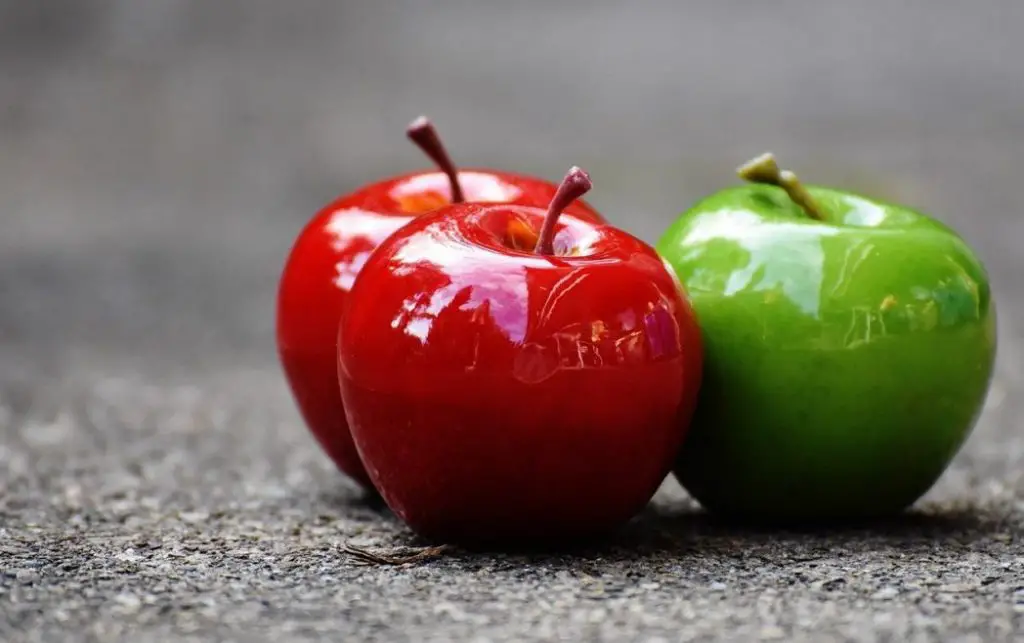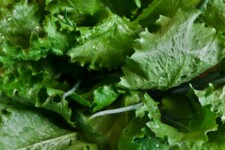Can Cats Eat Apples? (Do They Cause Health Problems?)
As the saying goes, an apple a day keeps the doctor away.
Apples have been known to have lots of benefits to humans, and they help reduce the number of trips to the doctor.
Research shows that apples are associated with health benefits such as reducing the risk of stroke, obesity, hypertension, cancer, diabetes and improving neurological health.
Due to the dozens of benefits that apples have on humans, pet parents are interested in knowing- can cats eat apples?
If so, what are the health impacts on felines? Is it one of the worst foods that cats can eat, or will it be beneficial as it is in humans?

Can Cats Eat Apples? Are they safe?
Apples are both safe and somewhat toxic to cats depending on the part of the fruit that the cat feeds on.
The American Society for the Prevention of Cruelty to Animals (ASPCA) categorizes apples as toxic since the apple seeds, leaves and stems are toxic to cats.
If you remove the seeds from the Apple, then the remaining part of the fruit will be safe for your cat to eat.
The seeds inside the apple fruit contain a dangerous component known as Cyanide, which is a health hazard to cats.
Even though apple seeds contain only a small amount of Cyanide, it can still cause complications if the cat eats the seeds.
If you cat ingests the apple seeds, stem or leaves by accident, you should seek your vet’s advice on how to solve the problem before it causes complications to your cat.
How can I prepare apples for my cat?
The first step when preparing an apple for your cat is to wash the fruit with clean water to remove any pesticides sprayed on the fruit while it was on the farm.
Next, cut the fruit into slices and remove the core and any seeds inside the fruit. Wash the fruit again to remove any traces of pips and seeds before giving it to the cat.
You can introduce the fruit to your cat by cutting it into small pieces and sprinkling it on top of the cat’s regular meal.
Small pieces make it easy for the cat to chew and avoid choking.
You can also mash the apple and mix it with the regular cat food. Some cat parents dice the apple and give it to the cat as a treat.
Like other fruits that cats can eat, you should give the apple fruit in moderation.
Giving your cat too much of the fruit may cause stomach upsets.
If the cat does not like the fruit, don’t force it on her; you can look for alternative fruits that she can eat.
Also, if by any chance the cat reacts negatively to the fruit, it is best to stop giving the fruit.
Health Benefits of Apples in Cats
Even though apples do not contain a protein element that cats need in their diet, it can be used to supply essential vitamins and minerals.
They are a rich source of mineral and vitamins such as vitamin A, vitamin C, and calcium, making them a healthy treat for cats.
They are also rich in pectin, a soluble dietary fiber that helps in digestion and reducing stomach discomforts.
The apple skin is rich in a chemical known as phytonutrients, a plant nutrient that acts inhibits oxidation.
Can I give my cat applesauce?
While most cat parents assume that applesauce is the same as mashing a real apple, we do not advice pet parents to give their pets the applesauce from the stores.
Applesauce picked from the supermarket shelves contain preservatives, colors and artificial additives that may have a negative effect on the cat’s health.
However, you can still prepare a healthy homemade applesauce in your kitchen.



